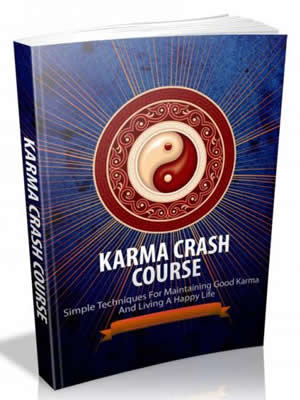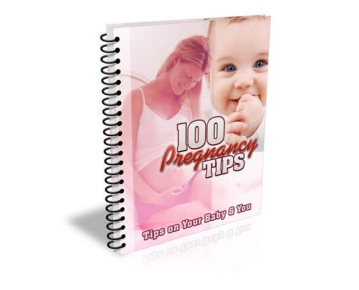Therapy or Medication: What Is More Effective for Mental Health?
Mental illness, including anxiety, depression, and bipolar disorder, affects millions of people worldwide. As medical advances unfold, two broad options are always in the limelight: therapy and medication. Both have proved effective, but which is better is always a debatable issue.
This article explains the benefits, limitations, and effectiveness of therapy and medication, offering information on how one can choose the best treatment program for their mental well-being.
Understanding Therapy for Mental Health
Therapy, or psychotherapy or counseling, is a structured talk with a trained mental health counselor. There are various forms of therapy, and each is employed to treat a specific mental disorder.
Types of Therapy
- Cognitive behavioral therapy (CBT) – Focuses on altering negative behaviors and thought patterns.
- Dialectical Behavior Therapy (DBT) - Helps with controlling intense emotions, usually applied to borderline personality disorder.
- Psychodynamic Therapy - Looks at past experiences and unconscious thoughts to establish current behavior.
- Humanistic Therapy - Centers on self-discovery and personal growth.
- Group Therapy - Provides support through the experience of others with the same issues.
Benefits of Therapy
- Addresses Root Causes: Therapy enables one to discover and address underlying emotional problems.
- Long-Term Benefits: One can use skills acquired in therapy throughout life.
- Personalized Treatment: Therapy sessions are customized to the individual's unique needs.
- No Risk of Side Effects: Therapy does not entail chemical substances, unlike medication.
Limitations of Therapy
- Time-Consuming: Results take longer to obtain compared to medication.
- Expensive: Therapy is expensive, particularly without insurance.
- Requires Discipline: Growth depends on consistent attendance and willingness to practice techniques.
Learning Medication for Mental Health
Medication is regularly prescribed to help manage symptoms of mental illness. It does this by altering brain chemistry to manage mood, behavior, and thought.
Regular Types of Medication
Antidepressants (SSRIs, SNRIs, MAOIs) - Used for depression and anxiety.
Mood Stabilizers - Often used for bipolar disorder.
Antipsychotics - Used for conditions such as schizophrenia.
Anxiolytics (Benzodiazepines, Beta-Blockers) - To treat anxiety and panic disorders.
Stimulants - Primarily used to treat ADHD.
Strengths of Medication
- Speedy Relief from Symptoms: Symptom relief happens sooner through medication than therapy.
- Treats Serious Cases: Most frequently called for by major illnesses like schizophrenia or depression.
- Easier Accessibility: Requires fewer sessions and may be prescribed by a primary caregiver.
- Could Enforce Therapy: Medication puts the patient at ease, thereby enhancing therapy effect.
Limitations of Medication
- Side Effects: Includes nausea, dizziness, weight gain, and risks of dependency.
- Does Not Cure Underlying Causes: Meds only relieve symptoms and do not cure underlying emotional causes.
- Can Be Dependent-Producing: Some medicines produce withdrawal issues and dependency.
Therapy vs. Medication: What Works Better?
How effective therapy or medicine will be actually depends on how serious the patient is, their severity of symptomatology, and personal preference.
When Therapy is More Successful
- Mild to Moderate Mental Health Disorders: Mild depression and anxiety, for example, are most often best treated by therapy alone.
- Requirement of Long-Term Change: Therapy instills coping skills that will last a lifetime.
- Fear of Side Effects from Medication: Some individuals don't want to take medication because they fear side effects.
When Medication is Most Effective
- Severe or Acute Mental Illness: In situations such as schizophrenia, bipolar disorder, or severe depression, medication is typically in order.
- Need for Rapid Symptom Relief: People experiencing over-the-top distress can benefit from faster relief provided by medication.
Alone, Therapy Won't Get the Job Done: If therapy is not productive for a good while, medication is the solution.
The Best Possible Solution: Some of Both?
The majority of mental health practitioners recommend a combination of therapy and drugs for optimal success. This twofold methodology allows patients to enjoy the quick relief from symptoms provided by medicine while working to eliminate the basis of their ailment through therapy.
Benefits of the Combined Choice
- Immediate and Long-Term Relief: The drug provides short-term relief of symptoms while the therapy creates lasting coping mechanisms.
- Personalized Therapy: A personal combination plan gives room for tailored needs.
- Reduces Chance of Relapse: Treating symptoms and the root causes both lower the risk of relapse.
Things to Consider When Making a Treatment Choice
When deciding on therapy, medication, or both, use the following points as considerations:
- Severity of the Symptoms: In cases of high severity, medications are usually preferred.
- Personal Options: Some may like discussing things instead of medicating.
- Accessibility and Cost: Insurance and how much it would cost can help decide.
- Side Effects Tolerance: If one is sensitive to medication side effects, therapy may be a better option.
- Professional Recommendations: Consulting with a psychiatrist or psychologist is crucial for making an informed decision.
Conclusion
Both medication and therapy are of long-term value to mental health, and the best treatment is unique to the individual and circumstance. Therapy benefits in the long term by curing root causes, whereas medication brings faster relief from symptoms and is often necessary in more severe instances. In the majority of cases, a mix of both works best. Speaking with a professional can help determine the best solution to improved mental health.








